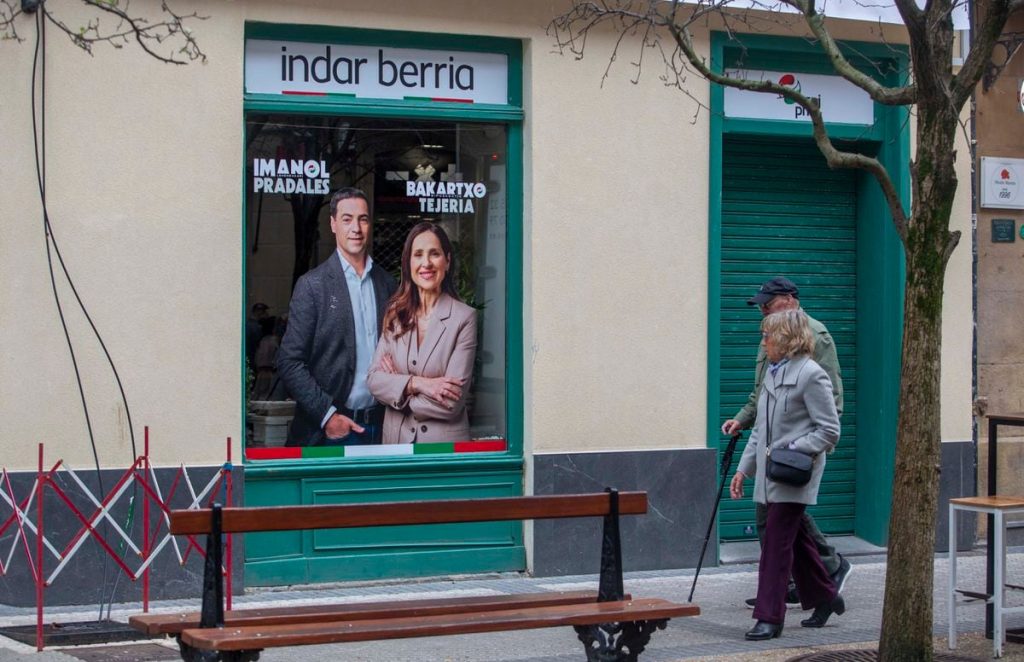The cultural center Niessen in Errenteria was filled with around 200 people on Monday, March 25th at 7 pm. The audience, mostly made up of older individuals, had gathered to listen to Pello Otxandiano, the EH Bildu candidate for lehendakari in the upcoming Basque regional elections. Otxandiano spoke calmly and slowly in both Basque and Spanish, addressing the opening of a new political cycle and the surprising growth of the left-wing nationalist movement in various regions. The latest polls show a virtual tie between EH Bildu and the PNV, something unimaginable 20 years ago. EH Bildu has been gradually gaining ground, and Otxandiano’s appearance reflects a confident and deliberate strategy to present the party’s vision for the future.
EH Bildu’s rise in popularity can be attributed to several factors, including the weariness of the PNV’s 40-year rule and EH Bildu’s focus on social issues and gradual political change. The party’s strategy of avoiding extreme positions and emphasizing collaboration with other parties has resonated with a diverse segment of voters. Additionally, EH Bildu’s agreements with the central government in Madrid have helped legitimize the party as a political player at the national level. The PNV, on the other hand, is facing challenges in adapting to a changing political landscape and addressing issues such as healthcare, which have become contentious points for voters.
The topic of ETA remains a sensitive issue in Basque politics, with EH Bildu facing scrutiny over its past affiliation with pro-independence groups linked to the terrorist organization. While some demand a clear condemnation of ETA’s actions, others recognize that voter sentiment has shifted, particularly among younger generations who have no direct memory of the violence. EH Bildu’s leadership acknowledges the need for an eventual debate on independence but focuses on gradual steps toward increased autonomy and improved governance. The party’s measured approach aims to appeal to a broad spectrum of voters, moving away from traditional ideological divides.
EH Bildu’s position is also strengthened by the fracture within the non-nationalist left, with Podemos and Sumar unable to present a unified front for the upcoming elections. This division could impact their chances of securing parliamentary representation, providing EH Bildu with an opportunity to attract disenchanted voters. Despite the challenges, EH Bildu has managed to position itself as a viable alternative to the established parties, leveraging its focus on social issues and strategic alliances to consolidate support across different demographic groups.
As the Basque Country prepares for a closely contested election, voters like Jesús Mari Ordoñez reflect the evolving political landscape. Ordoñez, who has personal ties to the region’s turbulent past, grapples with the decision of whether to support EH Bildu or the traditional parties. His deliberations underscore the complexities of Basque politics, where historical grievances and generational perspectives play a significant role in shaping voter attitudes. The upcoming election is poised to be a pivotal moment for EH Bildu and the Basque Country, as the party navigates the delicate balance between its past, present, and future aspirations.


